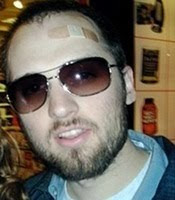In 1931, Hollywood had transitioned to all-sound pictures, and the United States found itself mired in the Great Depression. The great filmmaker Charlie Chaplin responded to these challenges precisely the way his Little Tramp character reacts his own: with a shrug and a smile. On the technical side, he retained the essence of his physical silent humor, but complemented it with a remarkable musical score and sound effects (literally, a few bells and whistles). On the creative side, his story subverted notions of wealth and poverty. The Tramp enters the film jobless, homeless, and friendless, subject to public ridicule. However, the blind girl who sells flowers on the street believes him to be a handsome millionaire. The actual millionaire is a suicidal drunkard, but in his intoxicated stupor, he treats the Tramp as his best friend. The same core idea underlies both relationships: this penniless man does indeed possess extraordinary worth. Another inspired sequence replaces the financial metaphor with a physical one: love empowers him to hold his own in a boxing match against a man twice his size. Ultimately, though, the girl and the viewer measures this man not by the size of his wallet or his muscles, but by the size of his heart.
Saturday, August 21, 2010
City Lights (1931, Charles Chaplin)
In 1931, Hollywood had transitioned to all-sound pictures, and the United States found itself mired in the Great Depression. The great filmmaker Charlie Chaplin responded to these challenges precisely the way his Little Tramp character reacts his own: with a shrug and a smile. On the technical side, he retained the essence of his physical silent humor, but complemented it with a remarkable musical score and sound effects (literally, a few bells and whistles). On the creative side, his story subverted notions of wealth and poverty. The Tramp enters the film jobless, homeless, and friendless, subject to public ridicule. However, the blind girl who sells flowers on the street believes him to be a handsome millionaire. The actual millionaire is a suicidal drunkard, but in his intoxicated stupor, he treats the Tramp as his best friend. The same core idea underlies both relationships: this penniless man does indeed possess extraordinary worth. Another inspired sequence replaces the financial metaphor with a physical one: love empowers him to hold his own in a boxing match against a man twice his size. Ultimately, though, the girl and the viewer measures this man not by the size of his wallet or his muscles, but by the size of his heart.
Labels:
1931 City Lights
Subscribe to:
Post Comments (Atom)



No comments:
Post a Comment